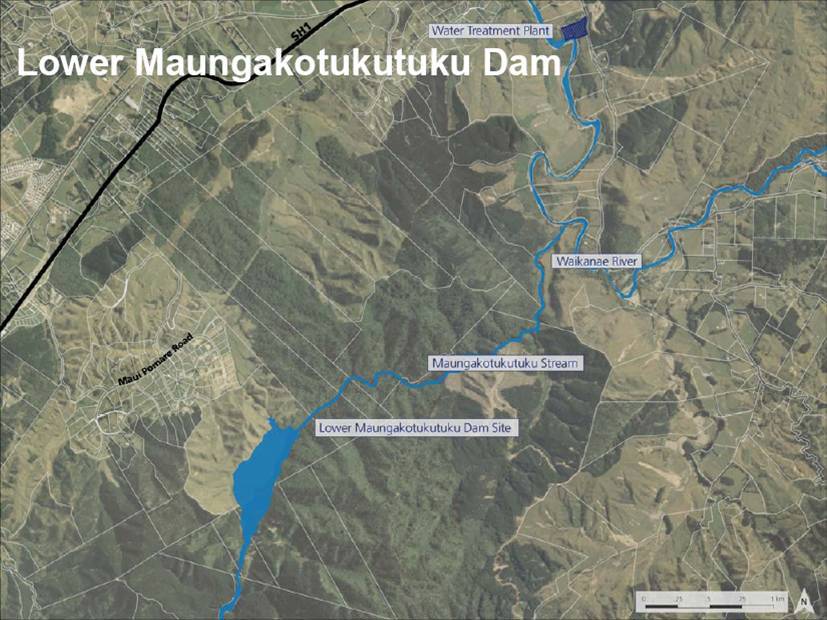- Dog and animal management
- Cemeteries
- Fees and charges
- Reusing, recycling, and waste
- Roads, transport and parking
- Business licences and permits
-
Waters
-
Water supply
- Restrictions and boil water notices
- Your connection
- Problems with your supply
- Where it comes from
- Treatment
- Daily water consumption and sources
- Water conservation
- Metering
- Leaks
- Water education
-
Water projects
- Waikanae treatment plant upgrade
- Ōtaki reservoirs
- Hautere water treatment plant upgrade
- Water supply project
- Completed – Water meter project
- Completed – Charging Regime Advisory Group
- Stormwater
- Wastewater
- Local water done well
-
Water supply
- Noise control
- Grants and funding
- Council facilities for hire
- Council properties
The future Maungakotukutuku Dam
Future proofing the water supply by securing the land for a dam
Council purchased land in 2012 for a future dam site behind the hills of Nikau Valley. With the current river recharge scheme and water metering, the community will not need to invest in the new dam for up to another 50 years. The image below shows the dam site.

This future dam proposal will involve creating a 28 hectare lake behind a 31.5 metre concrete dam wall. Stored water from the dam will be released into the Waikanae River to supplement the river's natural flow as required. Geotechnical drilling in the area has confirmed no active faults or significant concerns with foundations. The image below shows how the dam might look (looking from the northern end).

Restoring the farmland back into forest
Council has a plan to undertake extensive native replanting on farmland surrounding the dam site, as well as extensive pest control in nearby covenanted forest.
The 'river recharge with groundwater' scheme and future dam are expected to provide a secure source of good quality water for the next 100 years.